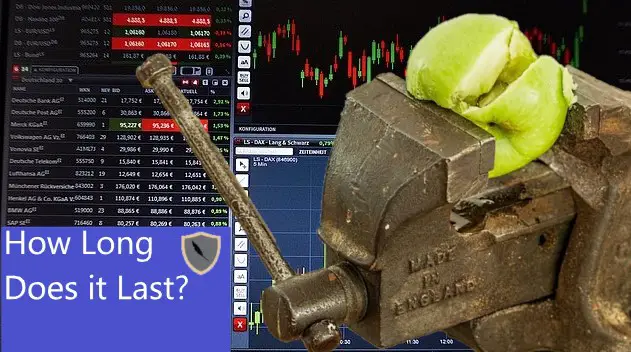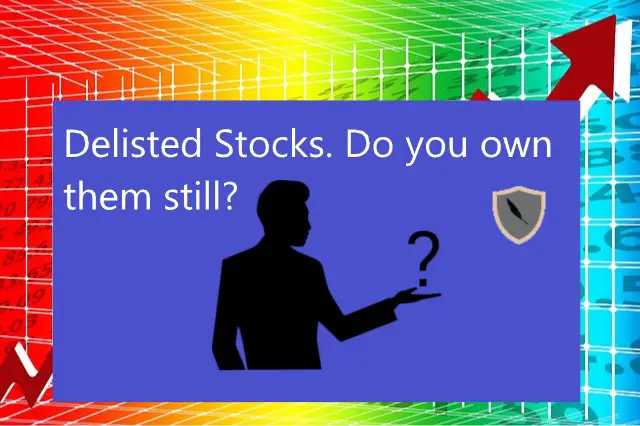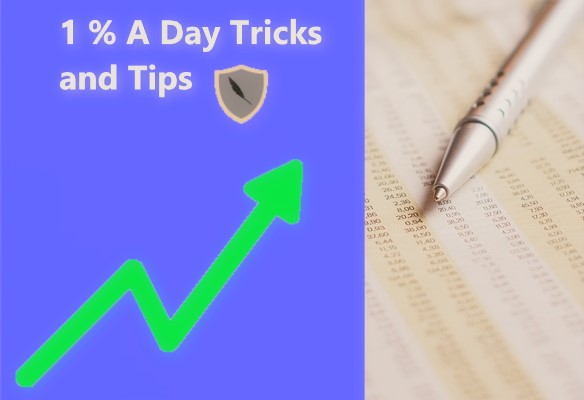Stock markets have been around for the past 5 centuries. Ever since the Dutch East India Company was founded in 1602 the world has been able to buy stocks. (Source)
However as the stock exchanges gain in net worth the questions rises, could the modern economy survive without them? The answer to this question is a resounding yes.
In order to comprehend how the economy could survive with the stock market we first need to understand the difference between the general economy and a stock exchange.
Here at Chronohistoria I teach people how to generate above average returns in the stock market (alpha). I publish articles on stock research and tips/tricks of the trade. Feel free to sign up for the free newsletter if you want to remain up to date.
Without wasting any time, let’s jump right into the article; could the economy survive without the stock market.
The Difference Between The Economy And The Stock Market?
These are two drastically different things. Saying that a stock market is the same as an economy is akin to stating that apples are oranges. They simply are not.
Let’s dive into the exact differences between the two.
The Economy
The economy is the entire commercial market for a given region, nation, or group. A local village in Uganda has its own economy separate from the national economy of Uganda or even the world’s economy. (Source)
The economy consists of any and all commercial activity in that space. If your town specializes in lumber production, then the economy of the town is lumber. It’s what your area does to commodify their production.
An economy is robust and resilient to stagnation or decline. This is because what creates an economy is groups of people working to extract wealth from the resources they have.
Individual actors/people if faced with a bad situation will generally work harder to create a more favorable one. Because of this we can see how resilient an economy can be. If your local town is losing wealth because lumber production declines then everyone might switch to another trade.
As economies become larger they become even more resilient and flexible. A town might disappear as the economy declines, but a nation wont go anywhere. National economies are incredibly resilient to bear markets and only undergo periods of recession.
Ever since the industrial revolution in 1790 we have seen a drastic rise in the value of global economies.
This process will continue as the population level rises. Since economies at their very basic building blocks are composed of individual agents (people) who buy, sell, and consume products. As the population rises so will economies. (Source)
Further, since the economies of the world base their net worth of population consumption and production they are rather resilient to declines. An example of a rare decline in global economies can be seen during the black plague where 30-50% of Europe’s population died from a pandemic.
Remi Jdwab et al wrote a great article titled “The Economic Impact of the Black Death ” at George Washington University. I highly recommend reading it if you’re interested in how individual people move and bolster economies. (Source for article)
The Stock Market
The stock market is where people who have excess capital gather to ‘invest’ their money in assets they think will return them a profit. At the very basic level a stock market is nothing but a glorified gambling den where the gamblers wear suits and wager significantly higher amounts of money.
All of this is done under the guise of professionalism but in reality nobody knows how the stock market will react to outside events. This is because the stock market is not representative of the current state of the economy.
Rather the stock market is a speculation hub where individual people (investors/traders) speculate on the future value of an asset. If the speculator is correct then they are awarded with increased capital/wealth. If wrong, then the speculator will lose wealth.
The sole purpose of the stock market is to efficiently move capital from failing assets to succeeding ones. Those who perform this capital allocation properly are awarded, while those who don’t are penalized. Yes, you can make consistent profits from understanding this. That is the purpose of this site; to teach people how to generate above average returns on their capital in the market.
The most important thing to take away from this entire passage is this. The stock market is not a true representation of the current state of the economy, but rather it is speculation on the future value of assets (stocks/bonds/futures/options/etc.).
So, Could the Economy Survive Without The Stock Market?
Yes. The economy can survive without the stock market.
This is because the stock market is completely unattached from the economy. Even if I snapped my fingers and made the stock market explode into a 99% fall in value the economy would be fine.
Sure people would probably lose a lot of money in that scenario, their 401k’s would tank. Would you see panic, yes initially. Eventually however everything would normalize and life would continue as it always has, this time without the stock market.
There are very few things in the world that can affect the economy. The main one is massive loss of life such as major conflicts or pandemics. This actually hurts the economy but also frees up resources for survivors to capitalize upon. In the end it eventually equals out.
Conclusion
There you have it, a succinct answer to could the economy survive without the stock market. The answer is a resounding yes. However in a world without the stock market we probably wouldn’t like how boring everything has become.
This is because capital allocation and thus innovation would slow to a crawling halt. Without the reward of excess wealth or the ability to ‘chase’ higher rewards there would be no allure to create, build, or innovate. At least that’s the theory. Ever since the creation of the Dutch exchange in the early 17th century we have only seen innovation and growing wealth.
As always if you like the content feel free to subscribe to the free newsletter. I send it out to keep people updated on everything that is going on in the world of stocks.
Further, you can check out some of the other articles below.
-
How Long Does a Short Squeeze Last? (3 Answers)

What is the time frame for you short squeeze? Well here is everything you will ever need to know to determine how long it will last.
-
Why You Still Own a Stock After It’s Delisted and How to Sell It

Do you still own a stock after its delisted? How do you sell it? Don’t worry the stock is still worth money and here is how to sell.
-
Can You Make 1% A Day in the Stock Market? (3 Steps)

Making 1% a day in the stock market is hard but defiantly doable. Here are 3 simple steps to helping you achieve this return.
Until next time, I wish you the best of luck in your investing journey.
Sincerely,



